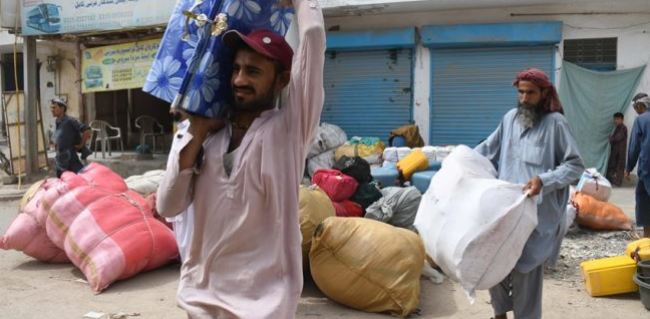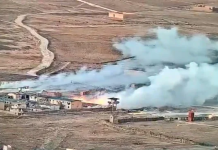KABUL – In a stern warning issued on Saturday, the United Nations raised concerns about the potential severe human rights violations that could result from Pakistan’s decision to forcibly deport Afghans living in the country. These violations include the separation of families and the deportation of minors.
Pakistan recently announced a crackdown on migrants residing in the country illegally, a group that includes approximately 1.7 million Afghans. The government’s directive mandates these individuals to return to their home countries by October 31 to avoid mass arrests and expulsion.
Pakistan’s government maintains that the crackdown is not specifically targeting Afghans but rather focuses on individuals in the country without legal status, regardless of their nationality. As part of this effort, a hotline has been established, and rewards are being offered to those who provide information about undocumented migrants.
However, UN agencies highlight the dire humanitarian crisis in Afghanistan, particularly concerning the rights of women and girls. The Taliban’s restrictions on education, public spaces, and job opportunities for women beyond the sixth grade have exacerbated these challenges.
The UN emphasized that Pakistan’s deportation plans could have serious consequences for those compelled to leave Afghanistan, exposing them to significant protection risks upon their return.
While acknowledging Pakistan’s sovereign prerogative over its domestic policies, the international community stands ready to assist in registering and managing Afghan nationals, including those in need of international protection.
The International Organization for Migration and the UN Refugee Agency jointly called on countries to halt the forcible repatriation of Afghan nationals and ensure that any potential returns occur in a safe, dignified, and voluntary manner.
Reports indicate that landlords and real estate owners in Islamabad have received notices instructing them to evict “illegal Afghans” and their families by the end of the month or face legal action. Police have also engaged clerics in some mosques to encourage residents to report Afghans in their neighborhoods.
Authorities in the southwestern Pakistani province of Baluchistan have reported voluntary departures of hundreds of Afghan families since the crackdown announcement. More than 100 individuals, including Afghans and Iranians, have been detained in connection with these efforts.
Both human rights organizations and the Taliban-led administration in Afghanistan have voiced criticism of this move by Pakistan. Pakistan has historically been a sanctuary for Afghan refugees, dating back to the Soviet occupation of Afghanistan in the 1980s. Since the Taliban regained control of Afghanistan in August 2021, an estimated 100,000 Afghans have sought refuge in Pakistan.
While Pakistani security forces and police have previously arrested and deported undocumented Afghans in the country, this represents the first large-scale crackdown of its kind. It occurs in the backdrop of an upsurge in attacks by the Pakistani Taliban (TTP), who maintain hideouts and bases in Afghanistan while launching assaults on Pakistani security forces. Pakistan has consistently called on the Taliban authorities in Afghanistan to cease their support for the TTP, a separate group but allied with the Afghan Taliban, though the latter denies offering sanctuary to the TTP.

















